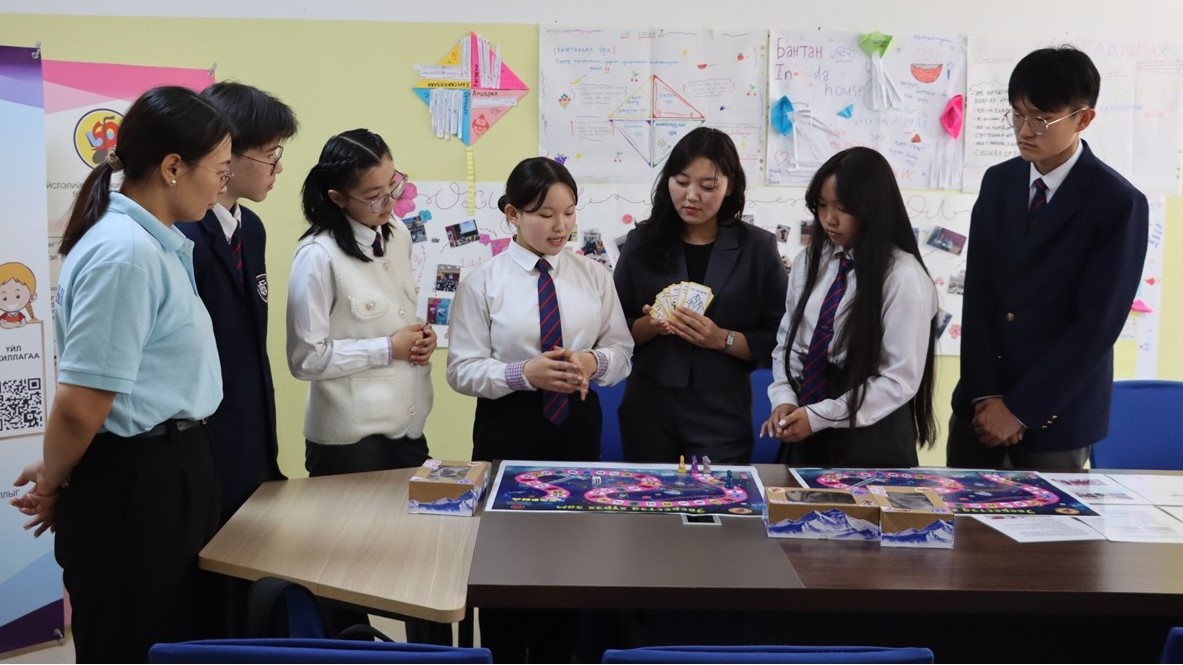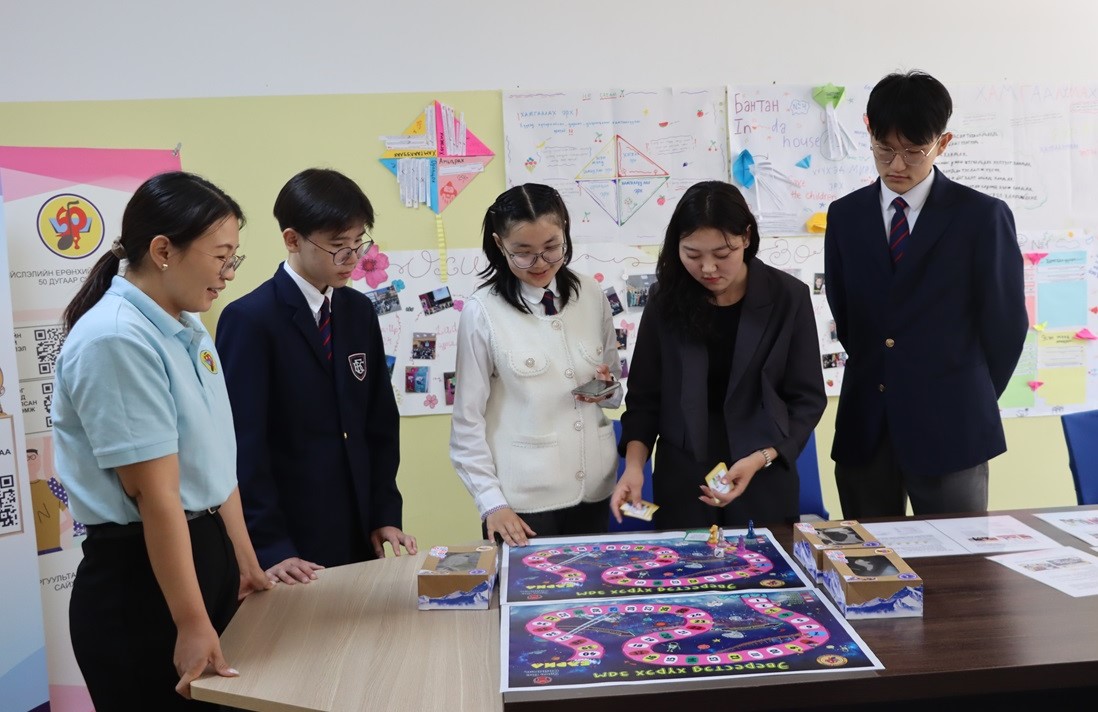A smart board game created by students to test their knowledge
Save the Children is implementing the Establishing School-Based Child Protection Mechanism in Mongolia project 14 schools in Gobi-Altai, Khovd aimags and the districts of Bayangol, Bayanzurkh, Sukhbaatar, Khan-Uul and Chingeltei in Ulaanbaatar. The project works with 14 multidisciplinary teams to strengthen child protection systems in schools.
As part of the initiative, micro project funding was provided to parents and students at target schools, giving them the chance to apply what they had learned about child protection in practical and creative ways. At General Education School No.50 in Ulaanbaatar, one student team turned this opportunity into a smart and engaging project: a board game to spread the knowledge of psychological first aid. A group of 10 students from grades 8 to 11, trained as peer educators through the project, received a micro project grant to develop their idea. The Larks Flying to the Peak of Everest team created a game that combines fun with learning. U.Tuguldur, a 10th grade student, and team member of the said, “Disseminating and sharing psychological first aid knowledge will produce the best results. We created this game with the hope that it would be innovative, interesting, and accessible to every child. The “I Support My Friends” handbook was very useful in preparing the questions.”

The board game includes 40 stations. Players take turns rolling the dice, move according to the number of dot and stop at the stations where they must answer questions about psychological first aid before continuing. Some stations can be skipped, while others, present challenges players. The first player to “Climb Mount Everest” wins. Team member T. Anujin, a 10th grade student, explained, “When I was first attending the training, I thought about how to spread psychological first aid knowledge. I came up with a solution, asked for advice from our teachers, and wrote the project. The rules of the game are simple and easy to understand, but they help children to think and test their knowledge. The main thing is that children gain information through psychological first aid training and apply it. We felt proud for achieving our goal, receiving project funding, and successfully implementing the project”. Throughout the process psychologist N.Davaajargal and design technology teacher G.Enkhchimeg at School no.50 mentored the. The team organized themselves into three groups: design, construction, and promotion to divide the tasks. They prepared the materials, molded the game pieces and built sturdy boards strong enough to withstand repeated use. U.Tuguldur explained, “If you all focus on one thing, you will not be effective. Planning is very important”.
The “Larks Flying to the Peak of Everest” team produced 24 board games,now enjoyed by children who play compete, learn new skills and test their knowledge of psychological first aid.

T.Anujin said, “I think our team spent the project money effectively and creatively. We had ideas for improvement even while making the game. Our parents supported us in every way. Not only children, but adults can play this game too because people’s knowledge of psychological first aid is not very good.” Alongside the board game, peer supporters also delivered the “I Support My Friends” training to all students in their school. School No.50 in Ulaanbaatar has 2,668 students and 125 children were selected as peer supporters by their classmates in grades 9-11. With the project‘s support, children became more active established 10 clubs, and took on leadership roles promoting child protection. “I arranged my lessons based on my interests. I participated in the training and became a peer supporter. My classmates accepted me. While teaching children, we had the idea of bringing psychological first aid knowledge to people of all ages. This idea came to fruition, and we were able to turn the project into a reality” U.Tuguldur reflected.
At the start, few students understood psychological first aid. Through peer lead training, the learned to recognize and respond to emotional distress, listen attentively, provide comfort, and show greater empathy. Using the Look, Listen, Link approach, they also developed the skills to connect their peers to the appropriate services when needed.
By creating and sharing their board game, the “Larks Flying to the Peak of Everest” team not only expanded children’s knowledge and strengthen their thinking skill, but also encouraged healthier habits by reducing screen time and prompting teamwork. Their project demonstrates how student-led initiatives can make child protection practical, creative, and meaningful in everyday school life.

